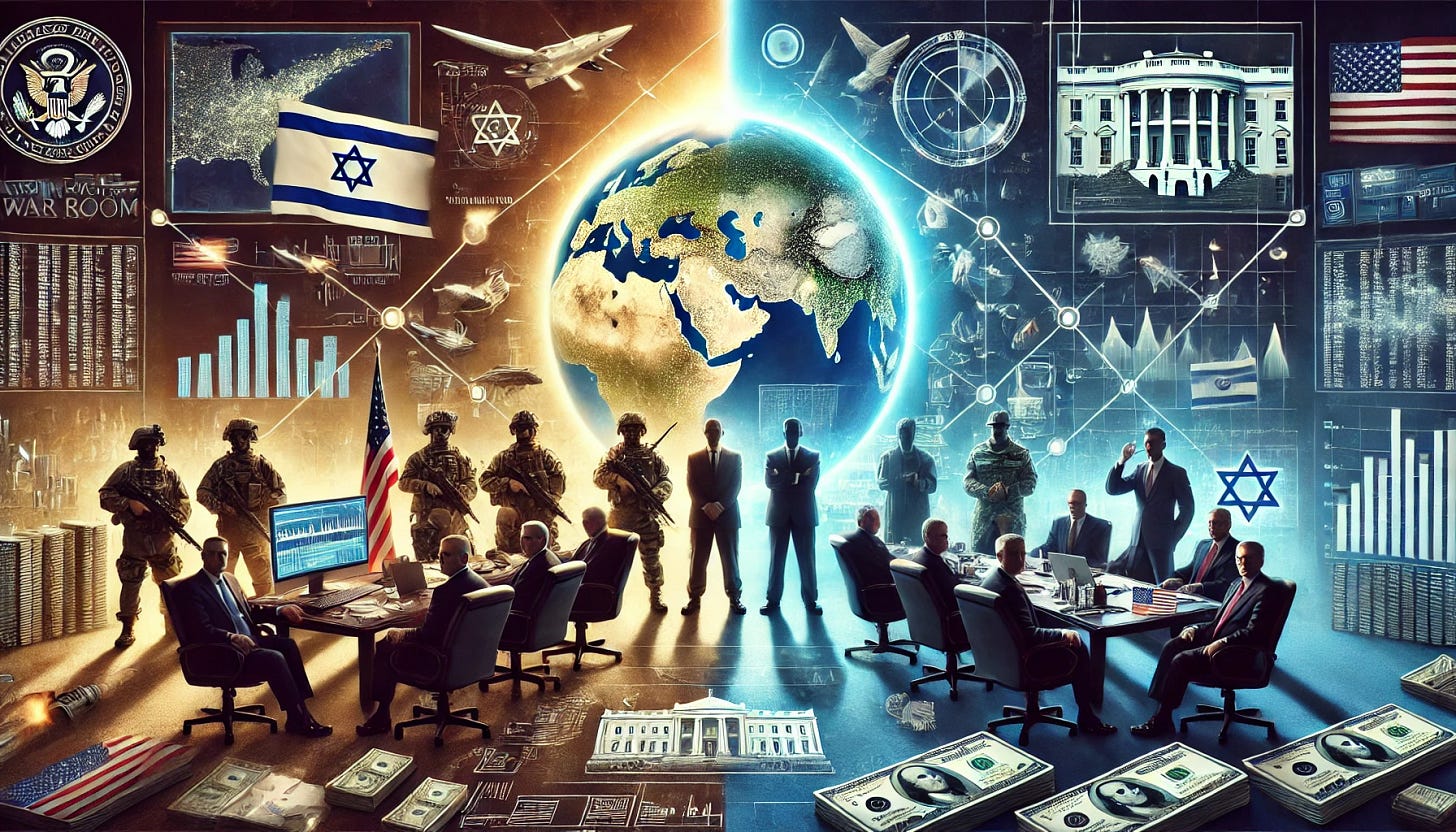There are no “Easy Wars” left to fight, but do not mistake the longing for one
Alastair Crooke November 15, 2024 © Photo: SCF Trump may not appreciate just how isolated the U.S. and Israel are among Israel’s Arab and Sunni neighbours.
There are no “Easy Wars” left to fight, but do not mistake the longing for one
Alastair Crooke, November 15, 2024
Trump may not appreciate just how isolated the U.S. and Israel are among Israel’s Arab and Sunni neighbours.
Paraphrase by ChatGPT 4.0
Israelis, as a group, are displaying confidence in their ability to influence Trump. While they may not expect him to fully endorse annexation of the Occupied Territories (something he did not support in his first term), they are optimistic about maneuvering him into supporting a war with Iran. Many Israelis are eager for such a war and for territorial expansion that excludes Arabs. They are buying into the narrative that Iran is defenseless and highly exposed to a combined U.S. and Israeli military assault.
Trump’s appointments so far reveal a foreign policy team staunchly supportive of Israel and vehemently opposed to Iran. Israeli media describe it as a “dream team” for Netanyahu, and it certainly appears that way.
The Israel Lobby seems to have achieved its goals. They have secured strong backing, with the additional bonus of a new CIA director known for his hawkish stance toward China.
Domestically, however, the tone is entirely different. Key appointments signal a focus on challenging entrenched structures: Matt Gaetz, a known disruptor, is appointed Attorney General to “clean the stables,” and Tulsi Gabbard, as Director of National Intelligence, will oversee all intelligence agencies and control the President’s Daily Briefing. These changes could bring intelligence assessments closer to reality.
The entrenched inter-agency bureaucracy is deeply alarmed, particularly regarding Gaetz’s appointment, and appears to be in panic mode.
Elon Musk and Vivek Ramaswamy face the formidable challenge of curbing runaway federal spending and currency overproduction. The system relies heavily on bloated government spending to sustain its vast security apparatus, which will not be easily dismantled without a fierce struggle.
Thus, while Trump has assembled a team favorable to Israel on foreign policy, his domestic picks represent a rebellious counterweight.
This seems intentional. Trump likely recognizes that Biden’s economic policies, characterized by government job creation and excessive public spending, have set a dangerous precedent. Transitioning to a system of tariffs and lower taxes will be highly disruptive and could trigger significant backlash as the “easy money” economy is phased out.
Trump’s ultimate intentions remain unclear. His strategy appears opaque, with only glimpses of his plans visible amidst the chaos created by the entrenched inter-agency powers. For example, the Pentagon’s recent sanctioning of private contractors in Ukraine occurred in coordination with inter-agency stakeholders, demonstrating their persistent influence.
The same entrenched bureaucracy that hindered Trump’s first term remains a challenge. During the Ukraine impeachment hearings, a witness openly admitted to disregarding the President’s directives because they did not align with the inter-agency consensus. This effectively sidelined Trump’s authority in shaping foreign policy.
This dynamic continues to manifest. When Netanyahu publicly claims to share a unified vision with Trump on Iran, it reflects an indirect effort to dictate Trump’s policies. Similarly, rumors about key appointments to Trump’s team appear to be attempts by the inter-agency network to assert its preferences. Unsurprisingly, this has created widespread confusion.
At this early stage, one discernible theme is Trump’s resistance to war and his demand for personal loyalty from his appointees, with no allegiances to the Lobby or entrenched bureaucracies.
However, his selection of “Israel First” figures raises questions. Could Trump be making a calculated trade-off to target Iran, thereby disrupting China’s primary energy supply and weakening both China and its allies, like Russia? This would deal a significant blow to the BRICS alliance and its transportation corridors, which rely heavily on Iranian energy and infrastructure.
The RAND Corporation’s recent review of the 2022 National Defense Strategy underscores the dire state of U.S. military readiness. It concludes that the U.S. is ill-prepared for serious competition with major adversaries and could face defeat in a multi-theater conflict. RAND warns that the American public has not grasped the implications of losing its global superpower status, making global engagement crucial to preserving U.S. influence.
Yet, as one analyst notes, the U.S. has no “easy wars” left to fight. The RAND report highlights that the U.S. must choose carefully, as its resources are insufficient for multiple conflicts. While Trump may avoid war, the Israel Lobby remains determined to push for one, particularly against Iran, believing that a swift, targeted strike could topple Iran’s leadership and transform the region.
Netanyahu is already implementing annexation policies on the ground without waiting for Trump’s approval. His government is aggressively pursuing ethnic cleansing, which Trump might struggle to reverse. Failure to do so could see Trump labeled complicit in atrocities.
The narrative around a potential war with Iran mirrors earlier rhetoric about Russia. Just as Russia was previously dismissed as weak and incapable, similar claims are now made about Iran. General Jack Keane recently argued that Israeli strikes had left Iran exposed and its defenses destroyed. This echoes past underestimations that led to strategic miscalculations.
Netanyahu, facing immense political pressure and potential legal jeopardy, may be desperate enough to escalate the situation. He frames his actions as part of a divine mission for Israel.
Iran, however, is likely to retaliate before the U.S. presidential inauguration, showcasing its military capabilities. This could trigger a broader regional conflict, fueled by widespread anger over the ongoing violence in the Occupied Territories and Lebanon.
Trump might not fully grasp how isolated the U.S. and Israel have become among Arab and Sunni nations. A regional war could exacerbate U.S. vulnerabilities, destabilize Trump’s economic plans, and lead to a cascading collapse of both domestic and foreign policies.



